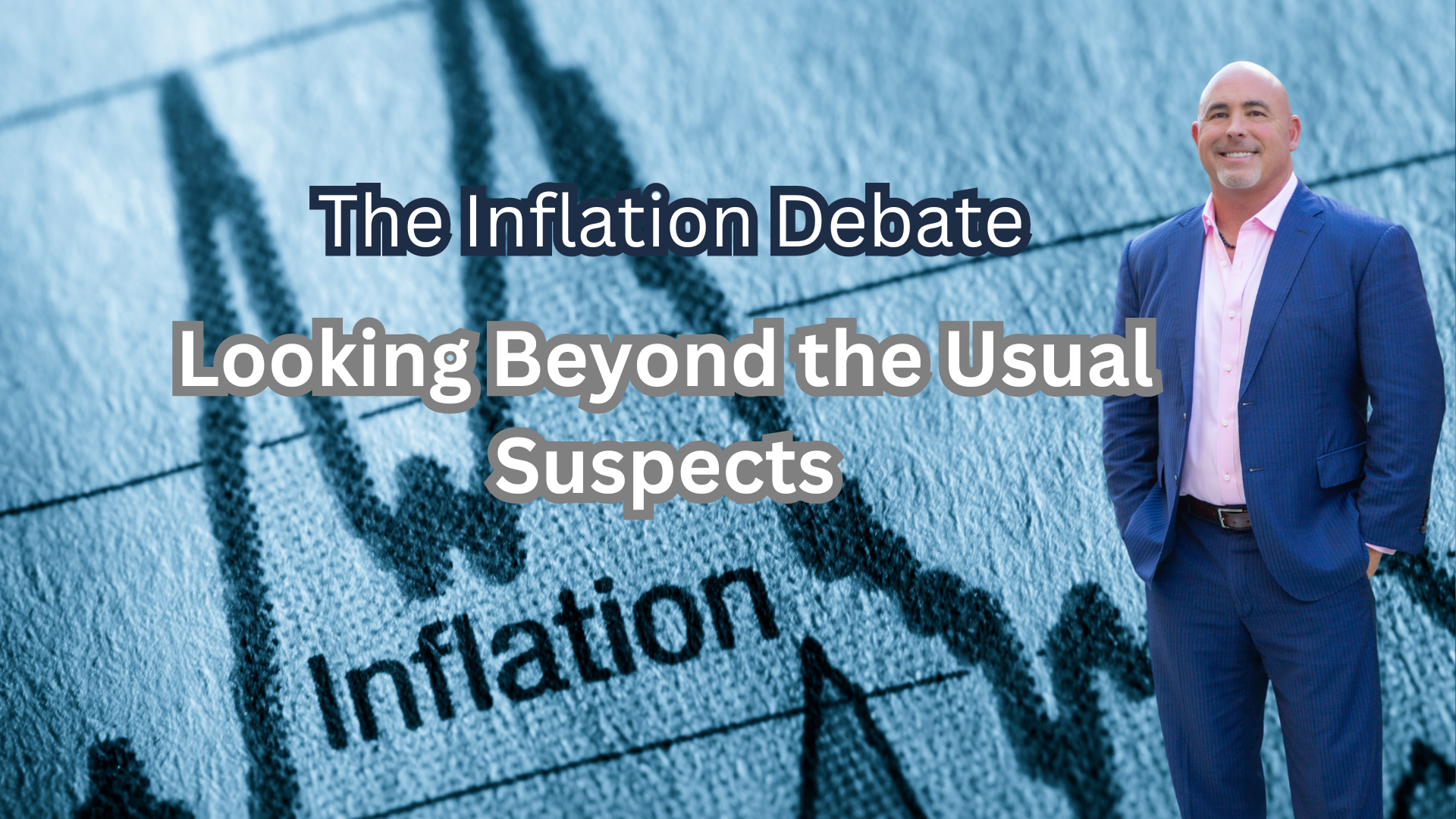As the politicians make their pitches about who gets your vote, both sides seem to have a lot to say about inflation and its causes.
It’s a topic that hits close to home for all of us, affecting everything from our grocery bills to our business operations. But often, we’re missing the forest for the trees in these conversations.
Time and again, we hear inflation blamed on a laundry list of factors: supply chain disruptions, global events, even consumer behavior, and of course, the easiest scapegoat– corporate greed. While these elements may play a role, they’re often just symptoms of a larger issue that’s conspicuously absent from many of these discussions: the impact of government spending and monetary policy.
Let’s take a step back and consider the words of economist Milton Friedman: “Consumers don’t produce inflation. Producers don’t produce inflation. Inflation is produced only by too much government spending and too much government creation of money, and nothing else.”
Don’t get me wrong – I’m not saying all government spending is bad. Investments in infrastructure and defense are important parts of the federal government’s role. But it’s crucial to understand that when the government starts acting like a Beverly Hills housewife with a no-limits credit card and dramatically increases spending without a corresponding increase in productivity or revenue, it inevitably leads to inflationary pressures.
What concerns me most is the reluctance to acknowledge this fundamental economic principle. Instead of addressing the elephant in the room, there’s a tendency to point fingers at easier targets. It’s simpler to blame corporations or global events than to grapple with the complex implications of our fiscal and monetary policies.
Government overspending and incompetence. That’s where inflation is coming from. Make no mistake. https://t.co/zRyhrQxc1V
— Jason Sisneros (@thejsisneros) August 19, 2024
When they cry “Corporate greed” it dangerously misdirects our attention from the root causes of inflation because it’s easy to point to the ones changing price tags.
It’s no wonder we become the easy target. But this surface-level observation ignores the economic pressures that force these price hikes in the first place.
Here’s the reality: most businesses, especially small and medium-sized enterprises, operate on razor-thin margins. We don’t have the luxury of absorbing significant cost increases without passing some of that on to consumers. When our suppliers raise prices, when energy costs soar, when we have to pay more to attract and retain staff – these costs have to go somewhere.
This blame game has real consequences. It can lead to misguided policies that further burden the private sector, like price controls or excessive regulations, which ironically can exacerbate inflationary pressures by creating supply constraints or additional costs.
Moreover, the notion that the private sector should simply absorb the costs of government spending sprees is not just unrealistic – it’s economically dangerous. Businesses are not bottomless piggy banks that can endlessly fund public sector expansion without consequences. When we’re forced to do so, it inevitably leads to reduced investment, slower job creation, and yes, higher prices for consumers.
This isn’t about partisan politics. Both parties’ administrations have engaged in deficit spending and supported expansionary monetary policies. The issue transcends political affiliations and gets to the heart of how we manage our economy.
So, as we listen to the speeches and debates, let’s challenge our leaders to address the full picture. Let’s ask tough questions about the long-term implications of our fiscal policies. And let’s not be satisfied with explanations that conveniently sidestep the role of government spending and monetary expansion in driving inflation.
For us as business owners, understanding and uniting against this misinformation is crucial.
Our voices need to be part of the conversation about inflation and economic policy.
By standing together, speaking out, and refusing to accept unwarranted blame, we can help steer this conversation in a more productive direction.

